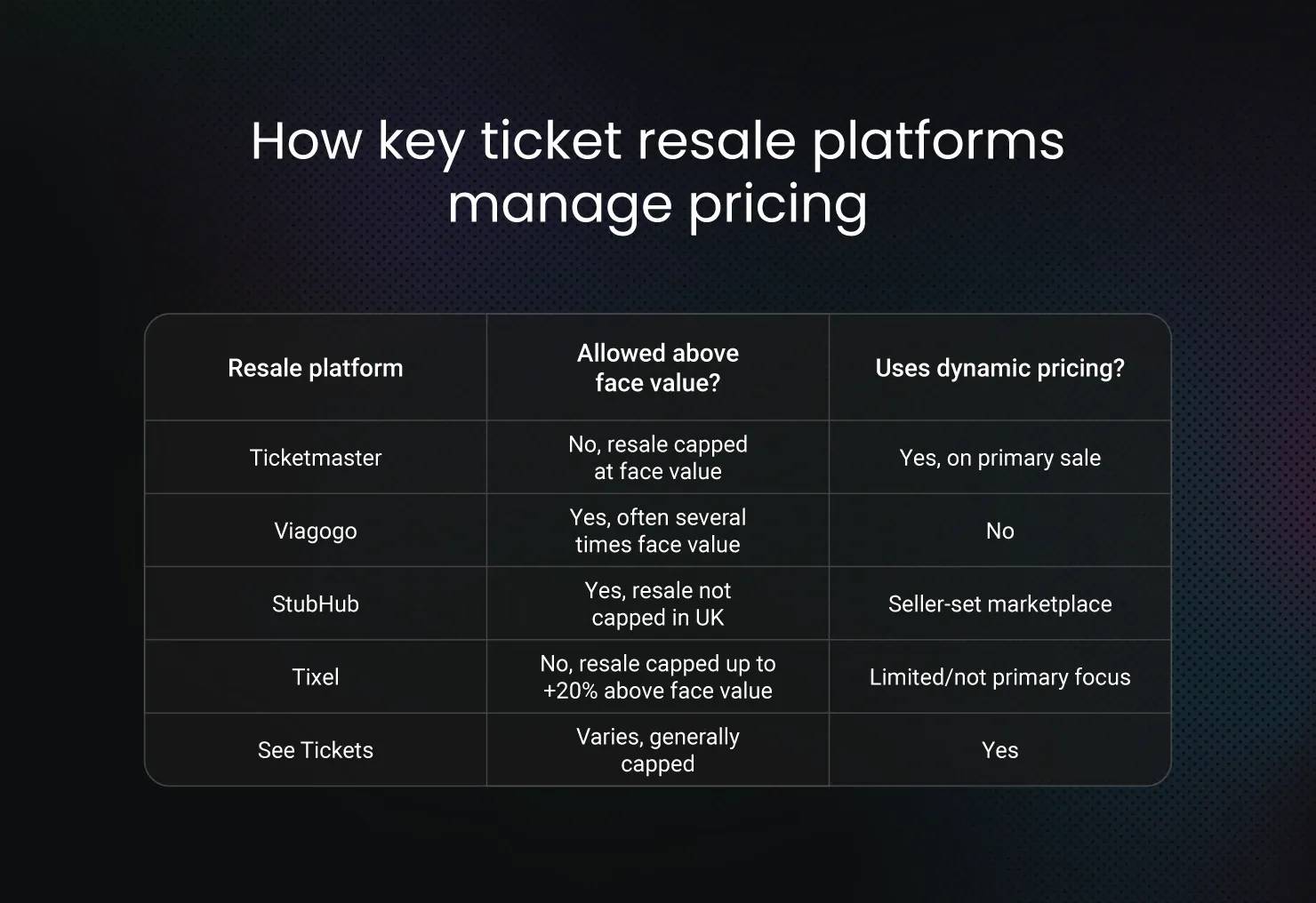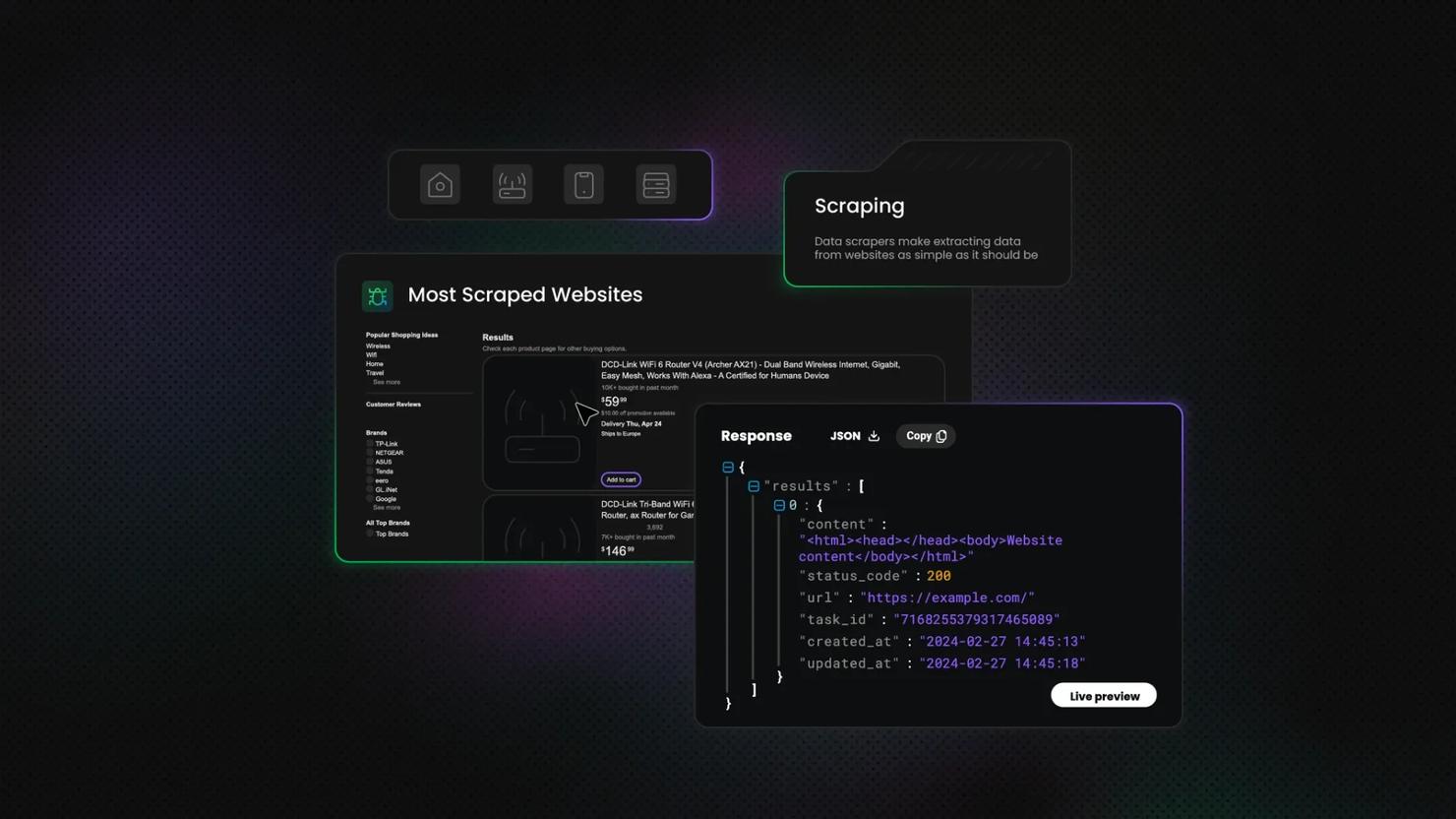UK Ticket Resale Ban: How Platforms, Venues and Artists Must Adapt
The talk around whether the UK government could put a ban on ticket resale above face value is set to reshape the live events industry, from secondary ticketing platforms to artists and venues, with fan fairness at the centre of the new rules. Decodo, a leading web data collection provider, has commented on the latest proposals to reform the ticket resale market, revealing the impact on key stakeholders.
Kotryna Ragaišytė
Last updated: Nov 18, 2025
3 min read

Impact on ticket platforms
Secondary ticketing platforms like StubHub, Viagogo, and Ticketmaster may face major operational changes. UK fans currently overpay an estimated £145 million annually on inflated resale tickets. This means that platforms might need to enforce resale caps, anti-bot measures, and ID-linked ticketing, while reassessing business models and revenue streams.

“Ticketing platforms that embrace ethical resale and transparency can maintain long-term customer trust while staying profitable,” says Gabrielė Vitkė, Senior Product Marketing Manager at Decodo. “Capped resale, ID-linked tickets, and anti-bot systems aren’t just regulatory requirements – they’re an investment in brand reputation and sustainability.”
Resale restrictions could reshape the live event experience
For theatres, stadiums, and live-event promoters, limiting resale affects demand forecasting and secondary revenue streams. The ban could provide an opportunity to develop fan-first initiatives such as verified resale marketplaces, loyalty programs, and ethical dynamic pricing strategies.
“Tech can help venues balance fair access with commercial viability,” noted Vaidotas Juknys, Chief Commercial Officer at Decodo. “Verified resale marketplaces and ID-linked tickets could allow promoters to protect genuine fans while safeguarding revenue streams.”
Artists and organisers would face new challenges and opportunities
Bands, sports teams, and festival organisers must also adapt. Transparent pricing and anti-bot policies influence revenue, fan satisfaction, and long-term loyalty. Inflated resale has cost the industry millions, while fair ticketing models strengthen brand reputation.
Which concerts made headlines for dynamic pricing and inflated resale?
1. Taylor Swift – The Eras Tour (2024)
Official dynamic pricing saw seats jump from £59 to nearly £660 within hours.
Resale listings on some platforms later passed £3,000 for standard seats.
2. Oasis Reunion (2025)
Face-value tickets were around £150, while standard seated tickets could range from £73 to about £205.
Resale sites listed Wembley seats for £4,000+, sparking national outrage and prompting political pressure to act.
3. Bruce Springsteen (2023)
Dynamic pricing pushed mid-floor tickets on sale, at face value for £3-£4k according to a report by the Independent.
4. Harry Styles – Love on Tour (2021)
Trading at 250–350% above face value on major resale sites.
Some general admission tickets reached £800–£1,000.
How technology could shape fairer ticketing
Technology providers are crucial to enforcing the new rules. Verified resale platforms, ID-linked tickets, transparency dashboards, and fraud detection tools enable platforms, venues, and organisers to operate ethically and efficiently.
Tech companies like Decodo contribute with their solutions. Decodo’s proxy and web scraping tools help ticket platforms prevent scalpers, bots, and unauthorized resellers using their platforms. The service blocks ticketing platform access by default, ensuring users can’t use it for ticket scalping and botting.
Decodo’s own market research, conducted using publicly available SE Ranking data, supports the conclusion about the critical role of ethical transparency in ticketing. In the UK, Ticketmaster attracts approximately 823K monthly visitors, Viagogo around 22.2K, and SeetGeek about 6.6K. This volume highlights significant consumer demand and the need for technology that ensures fairness and transparency.
“The data suggests that both fans and platforms are recalibrating,” adds Gabrielė Vitkė. “As technology adoption accelerates, we see a clear demand toward smarter, more transparent systems that protect fan interests while enabling sustainable growth for organisers and promoters.”
Bottom line
The UK’s proposed ticket resale ban signals a defining moment for the live events industry. Beyond compliance, it challenges platforms, venues, and artists to rebuild ticketing around transparency and fan trust. Those prepared to integrate ethical pricing, ID-linked tickets, and real-time data visibility will be best positioned to lead this shift.
As the conversation moves from regulation to innovation, success will hinge on how quickly the industry embraces technology and data-driven insight. The changes ahead may redefine not only how tickets are sold but how value and fairness are measured in live entertainment.
Please note that all information provided herein is for informational purposes only and does not grant you any rights with regards to the described data, websites, or other content. Decodo provides web data infrastructure designed exclusively for lawful, permitted, and compliant use. It is worth noting that even prior to the proposed UK resale cap law, the use of automated software (“bots”) to bulk-purchase tickets for resale was already prohibited under the Digital Economy Act 2017 and related regulations. Before engaging in any data collection or scraping activities, you should consult your legal advisors, carefully review the target website’s terms of service, or obtain a proper scraping license where applicable.
About the author

Kotryna Ragaišytė
Head of Content & Brand Marketing
Kotryna Ragaišytė is a seasoned marketing and communications professional with over 8 years of industry experience, including 5 years specialized in tech industry communications. Armed with a Master's degree in Communications, she brings deep expertize in brand positioning, creative strategy, and content development to every project she tackles.
Connect with Kotryna via LinkedIn.
All information on Decodo Blog is provided on an as is basis and for informational purposes only. We make no representation and disclaim all liability with respect to your use of any information contained on Decodo Blog or any third-party websites that may belinked therein.

